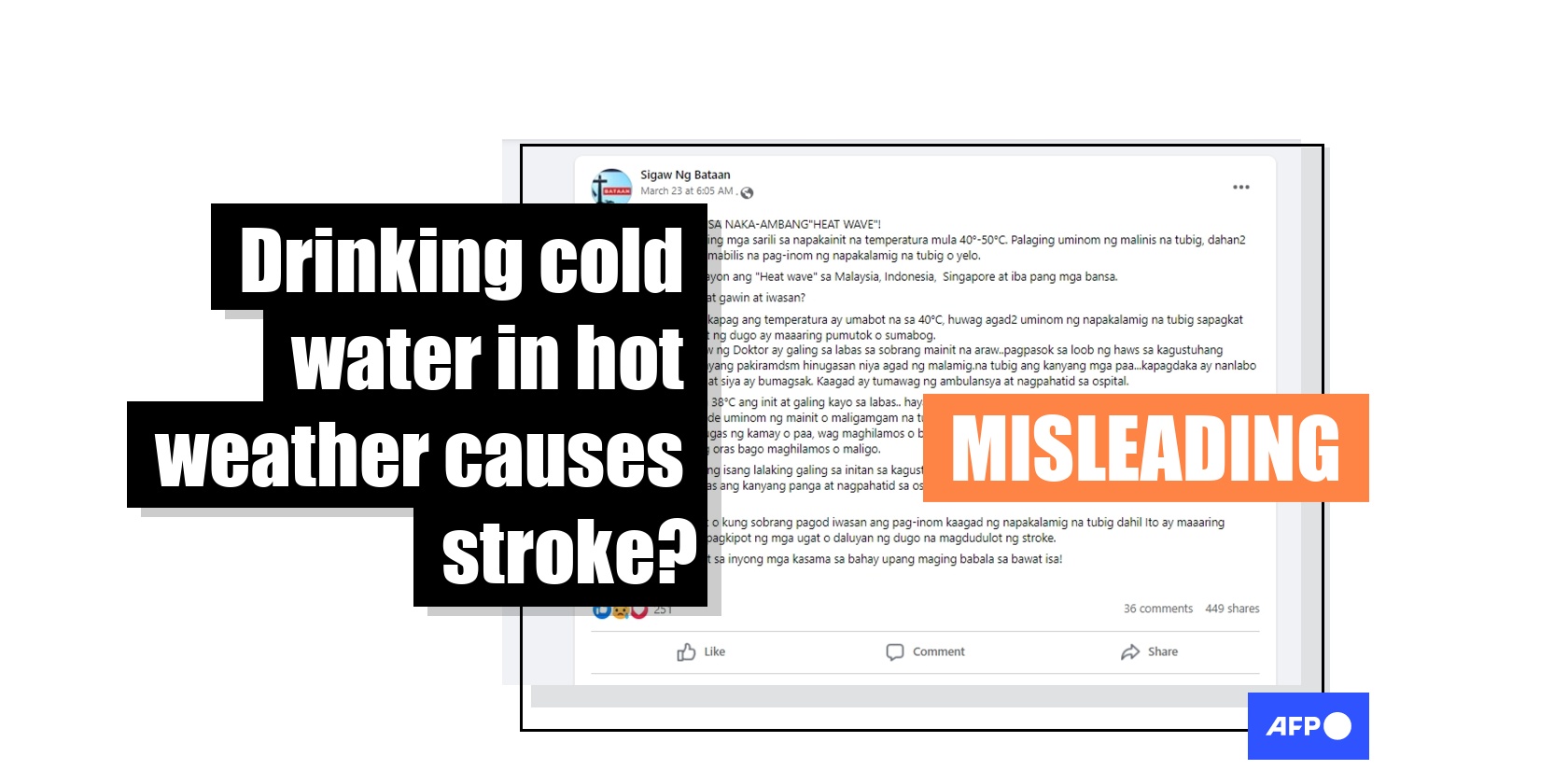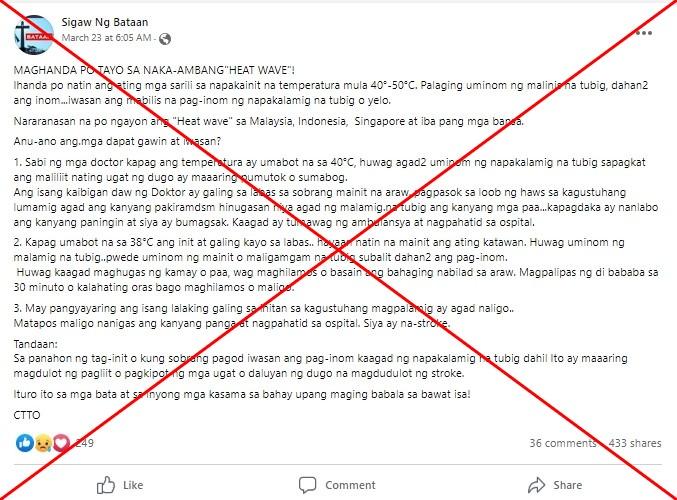
Doctors debunk misleading medical advice on 'how to cool down in hot weather'
- This article is more than two years old.
- Published on April 4, 2023 at 11:27
- Updated on April 4, 2023 at 11:33
- 3 min read
- By Lucille SODIPE, AFP Philippines
"Let's prepare for an imminent heat wave," reads a Tagalog-language Facebook post shared on March 23 on a page with more than 48,000 followers.
The post, which has been shared more than 400 times, lists recommendations for what people should and should not do when temperatures reach 38 to 50 degrees Celsius (100 to 122 degrees Fahrenheit).
"If the heat reaches 38 degrees celsius and you come from outdoors, just let your body feel the heat. Don't drink cold water. You can drink hot or lukewarm water but drink it slowly," it says.
"Don't wash your hands or feet immediately, don't wash your face or wet any part of your body that was exposed to the sun. Wait no less than 30 minutes before washing your face or taking a bath."
The post concludes with a reminder that "during summer season or if you're very tired, refrain from drinking very cold water because this might cause the blood vessels to constrict and lead to a stroke".

The Philippine nation's weather bureau announced on March 23 that the archipelago's hot dry season had begun, warning the public to take "precautionary measures to minimize heat stress".
The highest heat index the bureau recorded in March -- referring to the real temperature felt by the human body -- was 47 degrees Celsius (116 degreesFahrenheit).
In April, the agency reminded the public to drink water regularly, avoid wearing dark-coloured clothing and if possible, stay indoors in the middle part of the day.
The purported medical advice was shared elsewhere on Facebook here, here and here.
However, Philippine College of Emergency Medicine president Dr Richard Santos said that while the post contained some accurate information, it made a false connection between stroke and consuming cold water in hot weather.
"Some claims in the post are correct -- cold water does cause blood vessels to narrow. It's the body's physiological response when exposed to cold," he told AFP.
"But there's no evidence that (drinking cold water) is directly related to having a real stroke -- (which happens) either through a blocked artery or a burst blood vessel."
People should drink water if they are exposed to prolonged high temperatures because of the risk of dehydration, he added.
"Cold water may pose a danger to people with pre-existing medical conditions but this is very, very, rare. It's very unlikely for you to have a negative reaction to the simple act of drinking cold water", he said.
Santos said social media users should ignore the posts' advice about letting the body "just feel the heat", adding that people should limit their exposure to extreme temperatures.
"Our body can only regulate its temperature for about 30 minutes to one hour of being exposed to temperatures as high as this. So as much as possible, you want to cool down your body immediately," he said.
Heat stroke risk
According to Johns Hopkins Medicine in the United States, exposure to abnormal or prolonged heat and humidity "without relief or adequate fluid intake" can result in various types of heat-related illnesses.
These include heat cramps, heat exhaustion and heat stroke, which is a life-threatening emergency.
According to acting Philippine health secretary Maria Rosario Vergeire, people who are beginning to feel unwell because of the hot weather should in fact wet their bodies, contrary to the claim in the misleading social media posts.
"The most effective way to cool down the body is to give the patient a shower as long as they are conscious," she said in a press briefing on March 28.
She added that first aid measures for people suffering heat-related illnesses included helping them to remove unnecessary clothes and providing them with ice packs.
Dr Gabriel Gabriel , chief of the Makati Medical Center 's emergency medicine department in Manila advises that a patient should seek professional help immediately in case of heat stroke.
Copyright © AFP 2017-2026. Any commercial use of this content requires a subscription. Click here to find out more.
Is there content that you would like AFP to fact-check? Get in touch.
Contact us
